#Dr. Botkin
Explore tagged Tumblr posts
Text
105 years ago, on the night of 16/17 July 1918, the Romanov family and their attendants were killed in Ekaterinburg.
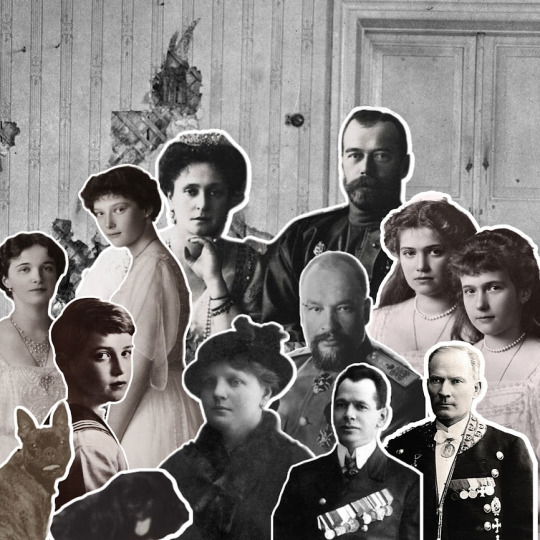
Pierre Gilliard, the beloved tutor of the imperial children, was one of the first people to enter the Ipatiev House after the murders. As part of the Sokolov Investigation into the crime and the subsequent media frenzy, he gave these statements:
“…the stoves; they were all full of various burned articles. I recognised a considerable number of burned things such as tooth- and hair-brushes, pins and a number of small things bearing the initials: "A. F." [Alexandra Feodorovna.]”
"I then went to the lower storey, the greater part of which was a basement. I entered with intense emotion the room in which, perhaps, they had died. Its aspect was most sinister. Daylight came in through a window with iron bars across it. The walls and the floor bore marks of bullets and bayonet thrusts. It was quite obvious that a dreadful crime had been committed there, and that several people had been killed. In my despair believed that the Emperor had perished, and, that being the case, I could not believe the Empress had survived him… Yes, it was quite possible that they had both been killed. And the children? Had they also been massacred? I could not believe it. The idea was too horrible. And yet everything seemed to prove that the victims had been numerous."
Nicholas II Alexandrovich Romanov (1868-1918) Alexandra Feodorovna Romanova (1872-1918) Olga Nikolaevna Romanova (1895-1918) Tatiana Nikolaevna Romanova (1897-1918) Maria Nikolaevna Romanova (1899-1918) Anastasia Nikolaevna Romanova (1901-1918) Alexei Nikolaevich Romanov (1904-1918) Dr. Evgeny Sergeievich Botkin (1865-1918) Anna Stepanova Demidova (1878-1918) Ivan Mikhailovich Kharitonov (1872-1918) Alexei Aloise Egorovich Trupp (1856-1918) Ortipo (1914-1918) Jimmy (1915-1918)
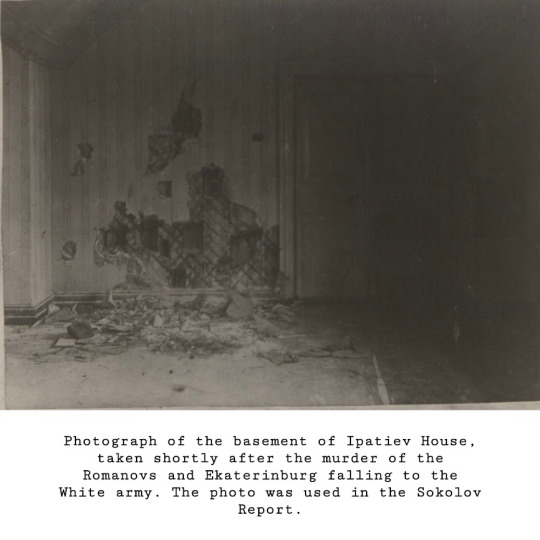




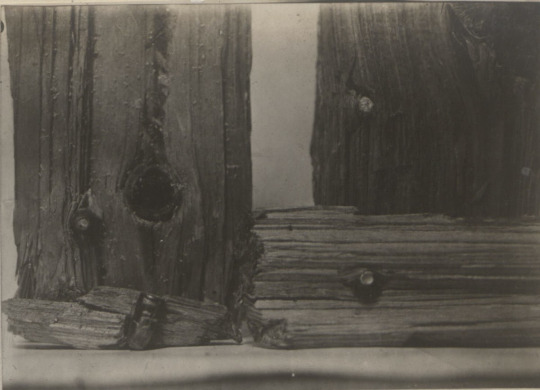

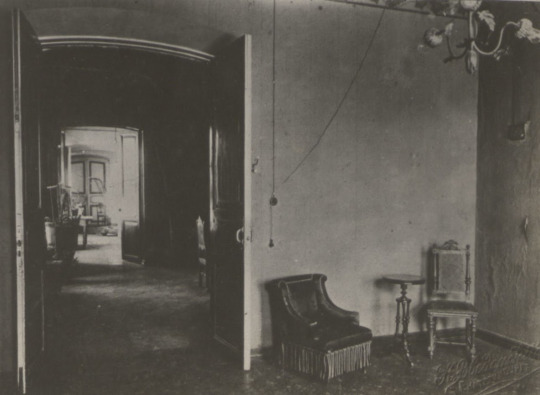


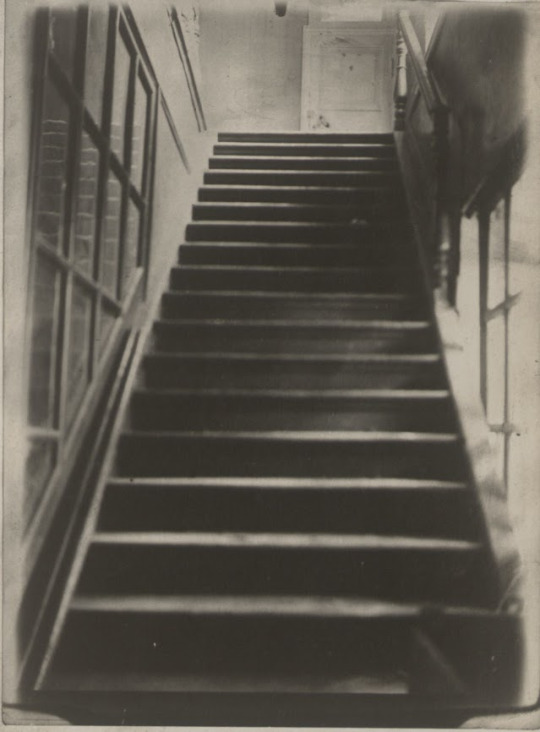
SOURCES: The Last Days of the Romanovs, Telberg, Wilton, Sokolov. The Crime of Ekaterinburg, Illustrated London News
#olga nikolaevna#tatiana nikolaevna#maria nikolaevna#anastasia nikolaevna#alexei nikolaevich#Tsar Nicholas II#Alexandra Feodorovna#Alexei Trupp#Aloise Trupp#Anna Demidova#Dr. Botkin#Evgeny Botkin#Ivan Kharitonov#Jimmy#Ortipo#OTMA#NAOTMAA#Romanov family#Russian history#imperial russia#Ipatiev House#Ekaterinburg#Nikolai Sokolov#Sokolov Report#sources#Pierre Gilliard#my own
111 notes
·
View notes
Text
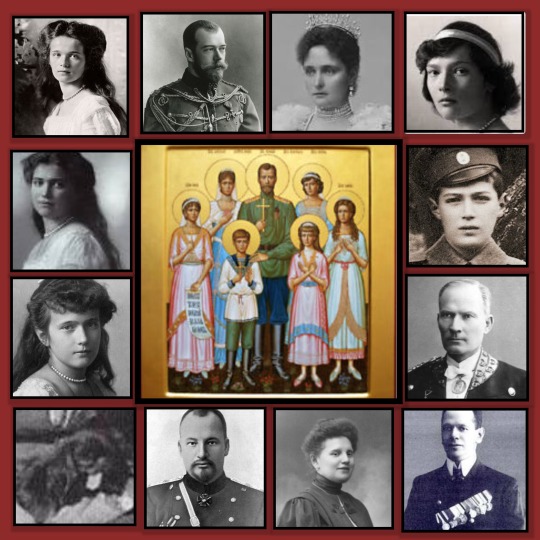
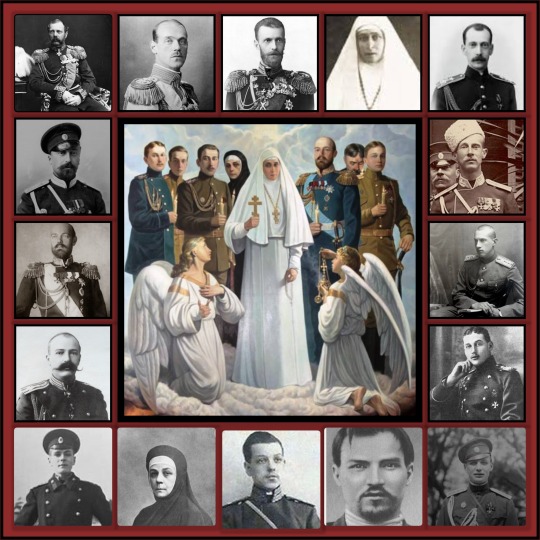
The Romanov Martyrs
I wanted to put together a little memorial that included all the members of the Romanov Family (as well as the members of their staff) that were murdered by the Bolshevik terrorists. This seems like a good week to keep them in our minds. Although we love and mourn the children especially, there were others we cannot forget.
Tsar Alexandre II was hunted down until finally blown to pieces.
Dowager Empress Maria Feodorovna lost two sons and five grandchildren (no wonder she could not accept they were dead)
Grand Duke Sergei Alexandrovich was also hunted down and blown to pieces
Three Mikhailovichi brothers were murdered
Four Konstantinovichi were murdered, three of them brothers; I cannot imagine what their mother, Grand Duchess Elizabeth Mavrikievna, went through...and so on.
May they rest in peace.
#russian history#imperial russia#romanov family#Nicholas II#Tsar Alexander II#Empress Alexandra Feodorovna#Grand Duchess Elizabeth Feodorovna#OTMAA#Grand Duke Mikhail Alexandrovich#Grand Duke Sergei Alexandrovich#Grand Duke Pavel Alexandrovich#Grand Duke Nicholas Mikhailovich#Grand Duke Georgiy Mikhailovich#Grand Duke Sergei Mikhailovich#Grand Duke Dmitry Konstantinovich#Prince Ioann Konstantinovich#Prince Igor Konstantinovich#Prince Konstantin Konstantinovich#Dr. Eugene Botkin#Anna Demidova#ivan karitonov#Akexei Trupp#Sister Varvara Yakolevna#Feodor Remez#mr. johnson
76 notes
·
View notes
Text
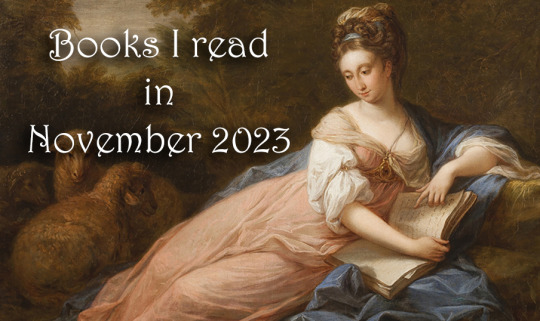
Leia, Princess of Alderaan
Author: Claudia Gray
First published: 2017
Rating: ★★★★☆
In the beginning, I felt this would be simply a decent fanfiction filled with movie references and easter eggs, but I was pleasantly surprised, as I read on, that instead, this turned out to be quite a compelling portrait of a girl who grew up to be the character I loved in Star Wars so much. A very believable portrait. I was also quite captivated that the main conflict here does not center on romance or teenage rebellion, but quite well-measured and carefully thought-through discussion of the prize of an uprising, its importance and difficulty, and the hard choices those with means to oppose the evil often have to make.
The Ethnic Cleansing of Palestine
Author: Ilan Pappé
First published: 2006
Rating: ★★★★★
Sombre, precise, and accessible. Also very important and heartbreaking. A clear portrait of a colonial project that is still brutally taking people´s lives, homes, and history. I still find it extremely bitter that the Zionists took so many lessons and inspiration from the Nazi regime. It is also extremely interesting that the aims, language, and strategies the Israeli government is using in the autumn of 2023 are the same as they had used in 1948. This book is even more terrible now, as we see the genocide of Palestinian people in real time.
The Maiden
Author: Kate Foster
First published: 2023
Rating: ★★★★☆
Interesting take on a real historical event. Lady Christian, accused and deemed guilty of the murder of her lover (who was also her uncle - thankfully not blood-related, but still urghhhh), a professional courtesan Violet, who hopes the said uncle might just be her ticket to a better life, and a bunch of other female characters who all have their agendas, reasons, and hopes, are all linked through ties that are only gradually revealed. In spite of revealing the murder and the death sentence of Christian at the very beginning, the author still manages to take you on a journey where there are unforeseen twists and turns. I personally could have done with less raised petticoats and sweaty fumbling, but at the same time, the grittiness and awkwardness of human sexuality are presented in a way that is very real, but never pornographic or lewd for the sake of it. Definite feminist tones are running through the whole book and I appreciate they do not turn any of the women in the book into a 21st-century robot. No. everything is very real and I am sure that many women will also find the characters relatable in their actions and motives. The book COULD have been shorter and left the same impact, but if you don´t mind slower pacing, you might enjoy this a lot.
The Escape of Alexei, Son of Tsar Nicholas II: What Happened the Night the Romanov Family Was Executed
Author: Igor Lysenko
First published: 1998
Rating: ★☆☆☆☆
Except for reprints of some genuine documents in full (i.e. the request of Dr. Botkin for allowing Alexei´s tutors to be allowed into the Ipatiev house), there is really no value to this publication. The whole first half merely gives some basic historical background, pretty much dismisses the accounts of the executioners as faked (without proof) and then there is a lot of trying to persuade the reader that Alexei lived. this the authors came to believe based on some really low-quality photograph comparison, a privately orchestrated writing analysis, and the fact some dude grows his beard like Nicholas II. The fact that Vasily Filatov was obviously very intelligent cannot be taken into account as proof at all, especially since the writers insist he spoke languages Alexei had never been taught and played instruments Alexei had never been taught to play etc. I also found it extremely weird that they insisted Alexei survived the brutal massacre in the Iptaiev house completely unharmed. This book was, of course, written before the 2007 discovery of the two missing bodies, so perhaps the fact those bodies had been missing in the first grave was just too tempting for the writers to let go of once they were contacted by Filatov. Yet in the whole book, there is not a single suggestion as to the fate of the "missing" sister. What happened to her according to these people? I picked this book up because I am fascinated with the Romanov pretenders and how much mental gymnastics they can go to. I am never disappointed in the amount of de-lu-lu.
And the Mountains Echoed
Author: Khaled Hosseini
First published: 2012
Rating: ★★★★★
Not one story, but many lives tying in together, all of which could have been their own book. This is, actually, one of my favourite types of novels and Khaled Hosseini managed to weave a beautiful tapestry full of sadness, desires simple and complicated, and some hefty moral questions. His characters are all so human that you can clearly see their faults and flaws, some of which are more and some less understandable to the reader, but you can always find something to relate to, care for, or pity in them. I would have wished for an ending more book-ish. But the one we get is not bad. It brought tears to my eyes. One of those books that capture life and that which makes us human.
Dostoevsky in Love: An Intimate Life
Author: Alex Christofi
First published: 2021
Rating: ★★★★☆
As I am writing this, I have only read one short story by Dostoyevsky and read only one of his novels (Crime and Punishment). I suppose I should have read a bunch more if I didn´t want to be spoiled for the rest. I imagine a proper biography on this complicated man could easily be a 1000+ pages book, so one must give credit to Alex Chrisofi for writing just about 200 and yet successfully introducing him to me. His childhood, his experiences of exile in Siberia, his ambitions to become a writer - and of course his loves, his gambling, his moral struggles - none of it is missing, everything has its place and tells enough to get to know Dostoyevsky and rouses interest to read more. As criticism, I might offer several footnotes that do not really connect to the matter at hand, and though compelling, I would be always careful before assigning a specific sentence from the author´s book to a specific moment of their life, because that is nothing but guesswork (even if effective in portraying emotions).
We Had To Remove This Post
Author: Hanna Bervoets
First published: 2021
Rating: ★★☆☆☆
This was short and that is the reason why I finished it. I suppose that is as good a review as any.
The Madman’s Gallery
Author: Edward Brooke-Hitching
First published: 2022
Rating: ★★★★★
Very entertaining, gorgeously illustrated, and left me feeling like truly walking through a gallery. I love Brooke-Hitching´s books, they are filled with funny and fascinating trivia and can point you in new directions of interest. The artworks are listed from the dawn of time up to contemporary times, finishing with a chapter about AI.
Silk Roads
Author: Peter Frankopan
First published: 2015
Rating: ★★★★☆
Money and greed rule the world, have always ruled the world and the West is really great at pretending it has always been the greatest part of the world while selling their souls for the dreams of colonialism. Peter Frankopan says all this in a very accessible way, pointing out both the obvious and providing lesser-known information. to be completely honest though, I do not think I have retained too much new stuff, since there was way too much all at once, but I suppose this book also gave me some good pointers to topics I have previously overlooked. Definitely worth checking out if you are unsure about how the world became such a mess (and actually always has been a mess). Pretty depressing with all the knowledge we have acquired and events that have happened since the publication of this book though.
Mammoths at the Gates
Author: Nghi Vo
First published: 2023
Rating: ★★★★☆
These books are such healing plasters upon my soul. A moment of peace and quiet, silent beauty, emotions that are welcomed and not repressed.
Starling House
Author: Alix E. Harrow
First published: 2023
Rating: ★★★☆☆
Things I liked: the writing, the atmosphere, the creepy old house. Things I did not particularly care about: the contemporary settings, the characters who all just seemed to fulfill a spot rather than actually live in the book. Things I did not like: repetitive situations. Overall I will need to think about this one a bit more before I come to a truly solid conclusion. Some time ago I was not thrilled with the author´s debut book, yet I keep thinking about it. Mabe this will be the same case?
3 notes
·
View notes
Note
For the ask game: Emma/Simon From Russia with Love~
Emma studies the postcard. From Russia with Love it proclaims, gaudy letters in cheap ink. Touristy kitsch. Perfectly innocuous—if it hadn’t appeared in the middle of her empty lab.
She flips it over.
Emma—
Botkin says hello. See you soon.
S.
Footsteps fall softly behind her. Emma turns, already smiling.
It’s been a while, with the police hot on his trail. The glasses and moustache are new. But the mischievous eyes, the curve of his smile... those are as familiar as her own heartbeat.
“The fusion generator’s working?”
“Of course,” Simon says. “You designed it.”
She blushes. Simon ducks in to kiss her cheek. “Hello, Emma.”
She smiles helplessly. “Hi.”
“Karpov wants you at the unveiling ceremony.”
“Are you going?”
“Simon Templar, international thief? No. But Albert Magnus, close personal friend of Dr Russell—”
“—the patron saint of scientists?”
Simon smiles, and it knocks the breath from her chest. “It seemed appropriate.”
“My funding isn’t that generous.”
“Karpov will pay for flights. First class.” He winks.
She laughs. “Don’t you have millions of dollars?”
“Good point. I’ll buy dinner.”
“Well,” Emma says, “in that case...”
He tugs her out the door. She follows, laughing, the postcard forgotten behind them.
#they own my whole heart#thanks for the ask M! this was (as always for them) really cute to write#can you believe i wasn't a fluff writer before this ship? incredible.#definitely overshot the original 100 word goal but i did manage to make it a#double drabble#simonemma#the saint (1997)#fanfic#GGM fanwork#saintscientist
3 notes
·
View notes
Photo

David Warner and Ian McKellen
#David Warner#Ian McKellen#Rasputin#Rasputin 1996#Rasputin: Dark Servant of Destiny#Tsar Nicholas II#Dr. Botkin
16 notes
·
View notes
Photo









Photo 1 : Tsar Nicholas II, Nikolai Pavlovich Chistyakov(?), Olga Evgenievna Byutsova, Nikolai Pavlovich Sablin and Grand Duchess Tatiana Nikolaevna on Pukion Sari in the Finnish Skerries, 18th July 1908.
Photo 2-3 : Grand Duchess Tatiana Nikolaevna and Grand Duchess Olga Nikolaevna on Pukion Sari in the Finnish Skerries, 18th July 1908.
Photo 4 : Dr. Evgeniy Botkin, Nikolai Pavlovich Chistyakov(?), Grand Duchess Tatiana Nikolaevna, Grand Duchess Olga Nikolaevna and other officers on Pukion Sari in the Finnish Skerries, 18th July 1908.
Photo 5 : Nikolai Pavlovich Chistyakov(?), Grand Duchess Tatiana Nikolaevna, Grand Duchess Olga Nikolaevna, Nikolai Pavlovich Sablin and Anna Alexandrovna Vyrubova on Pukion Sari in the Finnish Skerries, 18th July 1908.
Photo 7 : Grand Duchess Tatiana Nikolaevna, Grand Duchess Olga Nikolaevna, Nikolai Pavlovich Sablin and Tsaritsa Alexandra Feodorovna on Pukion Sari in the Finnish Skerries, 18th July 1908.
"18th July. Friday. In the morning stayed on deck. In the afternoon went to the shore. Drank tea there. Had breakfast with Papa and Mama."
(1908 Diary of Grand Duchess Olga Nikolaevna)
Photos from: Grand Duchess Tatiana Nikolaevna's 1908 Album Grand Duchess Olga Nikolaevna's 1907-1908 Album Anna Vyrubova's Album n°5
#1908#Pukion-Sari#Finnish Skerries#Olga Nikolaevna Romanova#Tatiana Nikolaevna Romanova#big pair#Nikolai Pavlovich Sablin#anya vyrubova#Nicholas II#alexandra feodorovna#Olga Evgenievna Byutsova#Nikolai Pavlovich Chistyakov#Dr Botkin
52 notes
·
View notes
Photo



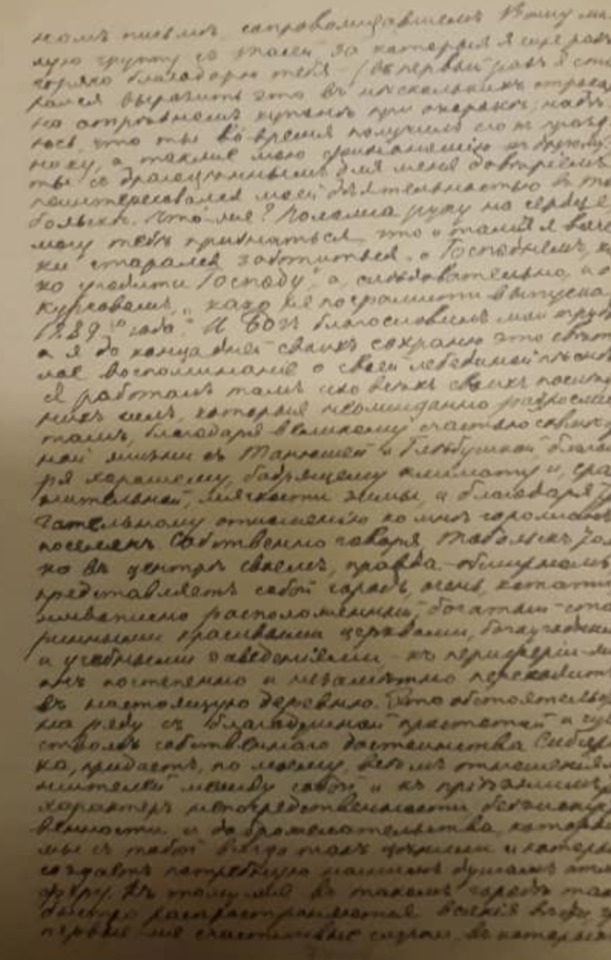

Eugene Botkin, 1916. Below is his last ever letter, written not long before he was murdered along with the Russian Imperial Family and three other servants on the 17th July 1918. Dr Botkin started this letter on 9th July 1918 but continued writing it on 17th July, when he heard the knock on his door, which was why letter ended abruptly. It was never finished or mailed. The letter was meant for his brother Alexander
“My dear, good friend Sasha, I am making the last attempt to write a real letter, - at least from here, - although this caveat is completely redundant; I do not think that it is in the cards for me to ever write from anywhere else again, - my voluntary imprisonment here is limited to my existence on this earth. In actuality, I have died – dead to my children, my friends, my work… I have died, but have not been buried yet, or rather was buried alive, - whichever you prefer: the consequences are almost identical, i.e. both one and the other have their negative and positive sides.
If I were literally dead, that is to say, anatomically dead, then according to my faith I would know what my children are doing, would be closer to them and undoubtedly more useful than now. I rest with the dead only civilly, my children may still have hope that we will see each other sometime in this life, while I, other than thinking that I can still be useful to them somehow, do not personally indulge myself with this hope, do not humour myself with illusions, but look directly into the face of unadorned reality.
Although for now, I am as healthy and fat as always, to a point where I feel disgusted every time I look in the mirror. I only console myself with the thought that if it would be easier for me to be anatomically dead, then this means that my children are better off, because when I am separated from them, it always seems to me that the worse off I am, the better off they are. And why do I feel that I would be better off dead, - I will explain this to you with small episodes, which illustrate my emotional being.
The other day, i.e. three days ago, when I was peacefully reading Saltykov-Schedrin, which I often read with pleasure, I suddenly saw the face of my son Yura in diminutive size, as if from far away, but [it was] dead, in a horizontal position, with closed eyes… The last letter from him was on 22 March o[ld] s[tyle], and since that time postal connection from the Caucasus, which even earlier faced great difficulties, probably stopped completely, as neither here nor in Tobolsk had we received anything else from Yura.
Do not think that I am hallucinating, I have had these types of visions before, but you can easily imagine, how it was for me to experience this particular thing in the current situation, which in general is quite comfortable, but to have no chance not only to go to Yura, but not even to be able to find out anything about him. Then, only yesterday, during the same reading, I suddenly heard some word, which to me sounded like ‘Papulya’, which was uttered in Tanyusha’s [his daughter Tatiana] voice, and I almost broke down in sobs.
Again, this was not a hallucination, because this word was uttered, the voice was similar, and not even for a second did I think that this was my daughter speaking, who was supposed to be in Tobolsk: her last postcard was from 23 May – 5 June, and of course these tears would have been purely egotistical, for myself, that I cannot hear and, most likely will never again hear that dear little voice and feel that affection that is so important to me, with which my little children spoiled me so. Again, the horror and sorrow which gripped me during the vision I described were purely egotistical too, since if my son had truly died, then he is happy, but if he is alive, then it is unknown what kind of trials he is going through or is fated to live through. So you see, my dear, that my spirit is cheerful, despite the torment I live through, which I bear, just described to you, and cheerful to a point where I am prepared to do this for many more years…
I am encouraged by the conviction that ‘one who bears all until the end is saved’, and the awareness that I remain loyal to the principles of the 1889 graduates. Before we graduated, while still students, but already close friends who preached and developed the same principals with which we started life, for the most part we did not view them from a religious point of view, I do not even know if too many of us were religious. But each codex of principals is a religion already, and for some it is most likely a conscious thing, while for others subconscious, - as it basically was for me, as this was the time of, not exactly uniform atheism, but of complete indifferentism, in the full sense of the word, - it came so close to Christianity that our full attitude toward it, or at least of many of us, was a completely natural transition. In general, if ‘faith is dead without work’, then ‘work’ cannot exist without faith, and if faith joins any of our work, then this is just due to special favour from God.
I turned out to be such a lucky one, through the path of heavy trials – the loss of my firstborn, the year-and-a-half-old little son Seryozha. Since that time, my codex has been widened and solidified significantly, and I took care that each task was not only about the ‘Academic’, but about the ‘Divine’. This justifies my last decision as well, when without any hesitation I left my children completely orphaned, in order to do my physician’s duty to the end, like Abraham did not hesitate to sacrifice his only son to God on His demand.
I strongly believe that the same way God saved Isaac, He will save my children too and be a father to them. But since I do not know how He will save them, and can only find out about it in the next world, my egotistic torment which I described to you, due to my human weakness, does not lose its torturous severity. But Job did bear more, and my late Misha always reminded me about him, when he was afraid that I, bereft of my dear little children, would not be able to bear it.
No, apparently I can bear it all, whatever God wills to burden me with. In your letter, for which I ardently thank you once more (the first time I tried to convey this in a few lines on a detachable coupon, hopefully you got it in time for the holiday, and also my physiognomy – for the other?), you were interested in my activities in Tobolsk, with a trust precious to me. And so? Putting hand on heart, I can confess to you that there, I tried in every way to take care of ‘the Divine, as the Lord wills’ and, consequently, ‘not to shame the graduates of year 1889′. And God blessed my efforts, and I will have until the end of my days this bright memory of my swan song.
I worked with my last strength, which suddenly grew over there thanks to the great happiness in the life [we had] together with Tanyusha and Glebushka [his son Gleb], thanks to the nice and cheerful climate and relative mildness of winter and thanks to the touching attitude towards me from the townspeople and villagers. As a matter of fact, in its center, albeit a large one, Tobolsk presents as a city that is very picturesquely located, rich with ancient churches, religious and academic institutions, [but] at the periphery it gradually and unnoticeably transitions into a real village. This circumstance, along with noble simplicity and the feeling of self-respect of Siberians, in my opinion gives the relationships among the residents and not visitors, the specific character of directness, naiveté and benevolence, which we always valued and which creates the atmosphere necessary to our souls.
In addition, various news spreads around the city very fast, the first lucky incidents for which God helped me be of use brought out such trust towards me, that the number of those wanting to get my advice grew with each day, up to my sudden and unexpected departure. Turning to me were mostly those with chronic illnesses, those who were already treated again and again, [and] sometimes, of course, those who were completely hopeless. This gave me the opportunity to make appointments for them, and my time was filled for a week or two ahead in each hour, as I was not able to visit more than six - seven, in extreme cases eight patients per day: since all these cases needed thorough review and much and much pondering.
Who was I called to besides those ill within my specialty?! To the insane, to those asking to be treated for drunkenness; [they] brought me to a prison to see a kleptomaniac, and with sincere joy I remember that the poor wretch of a lad, who was bailed out by his parents on my advice (they are peasants), behaved decently the rest of my stay… I never denied anyone, as long as the supplicants accepted that certain illnesses were completely beyond the limits of my knowledge. I only refused to go to those recently fallen ill if, of course, they needed emergency help, since, on the one hand I did not want to get in the way of regular physicians of Tobolsk, which is very lucky to have them in the capacity and most importantly, quality of relations.
They are all very knowledgeable and experienced people, excellent comrades and so responsive that the Tobolsk public is used to sending a horse or cabby to the doctor and receive him immediately. More valuable is their patience towards me, who did not have the ability to fulfill these types of requests, but on the contrary, was forced to make them wait a long time. It’s true that soon it became commonly known that I never refuse anyone and keep my word sacredly, a patient could wait for me with peace of mind.
But if their illness did not allow them to wait, then the patients went to local physicians, which always made me happy, or to Doctor Derevenko, who also possessed their vast trust, or they headed to the hospital, and this way it would happen that when I arrived at a time of prescheduled appointment, I did not find the patient there, but that was always convenient, since most of the time my schedule was so extensive that I wasn’t able to accomplish everything, at times debts formed, which I paid off when I did not find someone there.
To see [patients] at the house where I was staying was inconvenient, and anyway there was no room, nevertheless from 3 until 4 ½ - 5, I was always home for our soldiers, whom I saw in my room, the walk-through room, but since only our own [people] passed though there, it did not discomfort them. During the same hours, my town patients came to see me too, either for a refill of a prescription or to make an appointment. I was forced to make exceptions for peasants who came to see me from villages tens or even hundreds of versts away (in Siberia they don’t pay attention to distance), and who were in a hurry to get back. I had to see them in a small room before the bathroom, which was a bit out of the way, where a large chest served as an examining table.
Their trust was especially touching to me, and their confidence, which never betrayed them, that I will treat them with the same attention and affection as any other patient, not only as an equal but as a patient who has every right to my care and services, gave me joy. Those who were able to spend the night, I would visit at the inn early the next morning. They always tried to pay, but since I followed our old codex, of course I never accepted anything from them, so, while I was busy in an izba with a patient, they hurried to pay my cabby. This surprising courtesy, to which we are not used to at all in large cities, was occasionally highly pertinent, as at times I was not in a position to visit patients due to lack of funds and fast-growing cab costs.
Therefore, for our mutual benefit, I widely took advantage of another local tradition and asked those who had a horse, to send it for me. This way, the streets of Tobolsk saw me riding in wide bishop’s sleighs, as well as behind beautiful merchant trotters, but most often drowning in hay in most ordinary burlap. My friends were equally varied, which perhaps was not to everyone’s liking, but it was no concern of mine. To Tobolsk’s credit I must add that there was no direct evidence of this at all, and only one indirect, which in addition was not unquestionable.
One evening the husband of one of my female patients came to see me with a request to visit her right away, because she had strong pains (in the stomach). Luckily, I was able to fulfill his wish, albeit at a cost to another patient, for whom I did not schedule a visit, but rode with him to his house in a cab in which he came to get me. On the way he starts to grumble at the cabby, that he is not going the right way, to which the latter reasonably respon [letter ends abruptly].”
71 notes
·
View notes
Photo

Grand Duchess Olga smiling in the bushes at Dr. Botkin at the old Livadia Palace in Crimea, 1909.
9 notes
·
View notes
Photo
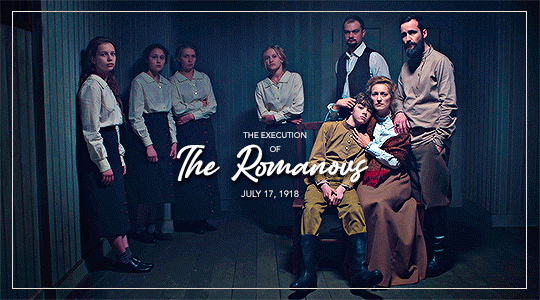
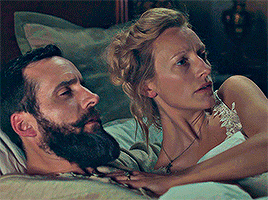
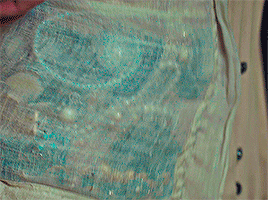

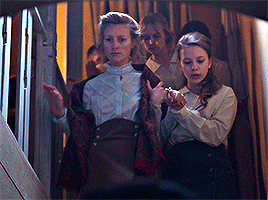
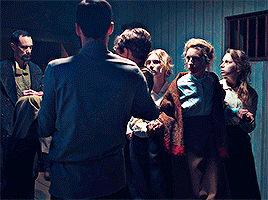
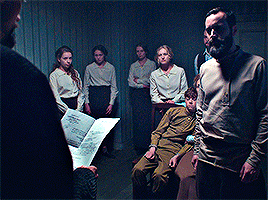
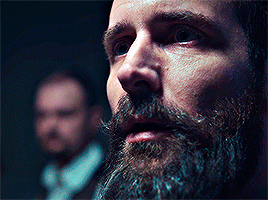
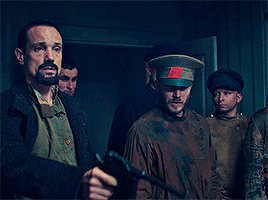
History meme
[6/8] Moments: The execution of Russia’s last imperial family (July 17, 1918)
[...] in the early hours of the morning of Wednesday 17 July, they [the Romanovs] were unexpectedly awoken by their captors and ordered to dress (The Romanov Sisters: The Lost Lives of the Daughters of Nicholas and Alexandra by Helen Rappaport).
In their bedroom, the girls carefully slipped into their jewel-lined camisoles, making sure every tiny eye hook was securely fastened before donning their plain white blouses and black skirts. Alexei, too, put on an undershirt concealing gems, while Alexandra tied a cloth belt containing several rows of large pearls around her waist (The Family Romanov: Murder, Rebellion, and the Fall of Imperial Russia by Candace Fleming).
[The family was] Told that they were being moved downstairs for their safety from unrest and artillery fire in the city, they complied without question. In an orderly line Nicholas, Alexandra and their five children, Dr. Botkin and their three loyal servants Demidova, Trupp and Kharitonov, walked quietly down the wooden stairs from their apartments, across the courtyard and into a digny basement room. As they went, there were ‘no tears, no sobs and no questions’ (The Romanov Sisters: The Lost Lives of the Daughters of Nicholas and Alexandra by Helen Rappaport).
Yurovsky began reading from the paper: “In light of the fact that your relatives in Europe [are] continuing their aggression against Soviet Russia [it] has been declared that [you are] to be shot”. “Lord, oh my God!” stammered Nicholas. He turned to his family. [...] “I can’t understand you”, said Nicholas. “Read it again, please”. Yurovsky did. “What?” Nicholas cried again. “What?” (The Family Romanov: Murder, Rebellion, and the Fall of Imperial Russia by Candace Fleming).
#perioddramaedit#gifshistorical#historyedit#userperioddrama#userthing#mine#my stuff#historymeme*#userrobin#userbennet#romulusnuffles#userclayy#supervalcsi#userposs#otma#otmaa#naotmaa#olga romanova#nicholas romanov#alexandra romanova#tatiana romanova#maria romanova#anastasia romanova#alexei romanov#russian empire#the last czars#MY BABIES💔#deserved so much better#RIP angels🕊❤️#this show is officially the hardest to color
353 notes
·
View notes
Text
Now in high quality: smiling in the Finnish Skerries, 1911-1912
This photo was online previously but in a low quality. This new, beautiful high quality version was shared by Ilya (Следствие on social medias, LastRomanovs on Flickr).



Grand Duchesses Tatiana Nikolaevna, Anastasia Nikolaevna, and Olga Nikolaevna smiling by the waterside with their father Nicholas II.
Lady-in-Waiting Sophie 'Isa' Buxhoeveden, Lady-in-Waiting and tutor Ekaterina 'Trina' Schneider, and Dr. Evgeny Botkin are behind them.
If you share these photographs on any platform (that includes TikTok and Pinterest!), please give the GARF reference and give credit to Ilya
📷 Следствие, GARF f.601 op.1 d.1663 fol.43
#now in HQ#Tatiana Nikolaevna#Anastasia Nikolaevna#Olga Nikolaevna#Nicholas II#Sophie Buxhoeveden#Ekaterina Schneider#Trina Schneider#Dr Botkin#Finnish Skerries#smiles#Romanov sisters#Romanovs
59 notes
·
View notes
Text



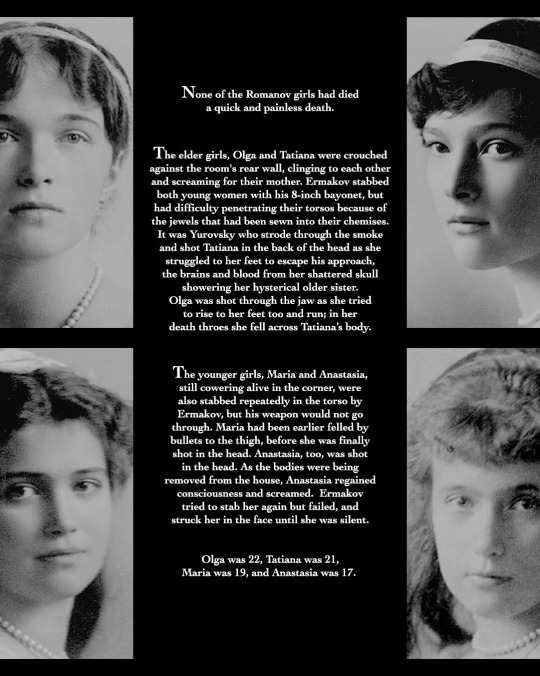



In the early hours of 17th July 1918, the entire Imperial Family along with their servants, were brutally murdered in the cellar of the Ipatiev House.
Around midnight, Yakov Yurovsky ordered the family physician, Eugene Botkin, to awaken the family and ask them to put on their clothes, under the pretext that the family would be moved to a safe location due to impending chaos in Ekaterinburg. They were led in the semi-darkness steep, narrow stairs to the ground floor. Instinctively the Romanovs followed the order of precedence instilled in them, the Tsar in front but refusing assistance as he struggled with the burden of Alexei, who winced with pain from his bandaged leg; then Alexandra leaning heavily on Olga’s arm, followed by Tatiana, Maria, and Anastasia. As they made their way to the stairs, the family paused and devoutly crossed themselves at the stuffed mother bear and her cubs that stood on the landing — a sign of respect for the dead, thinking as they did that they were going to be leaving the house.
Following the family came Dr Botkin, Alexei Trupp (Tsar’s footman), Anna Demidova (Tsarina’s maid), and Ivan Kharitonov (the family’s cook). They all exited the house, re-entering by another, adjacent door leading down into the basement. Nicholas asked if Yurovsky could bring two chairs, on which Tsarevich Alexei and Alexandra sat. Yurovsky's assistant Grigory Nikulin remarked to him that the "heir wanted to die in a chair. Very well then, let him have one."
The prisoners were told to wait in the cellar room while the truck that would transport them was being brought to the House. A few minutes later, an execution squad of secret police was brought in and Yurovsky read aloud the order given to him by the Ural Executive Committee:
“Nikolai Alexandrovich, in view of the fact that your relatives are continuing their attack on Soviet Russia, the Ural Executive Committee has decided to execute you.”
Nicholas, facing his family, turned and said "What? What?" Yurovsky quickly repeated the order and the weapons were raised.
#romanovs#history#royalty#myedits#nicholas ii#alexandra feodorovna#otma#alexei nikolaevich#tsarevich alexei#olga nikolaevna#tatiana nikolaevna#maria nikolaevna#anastasia nikolaevna#imperial russia
1K notes
·
View notes
Text
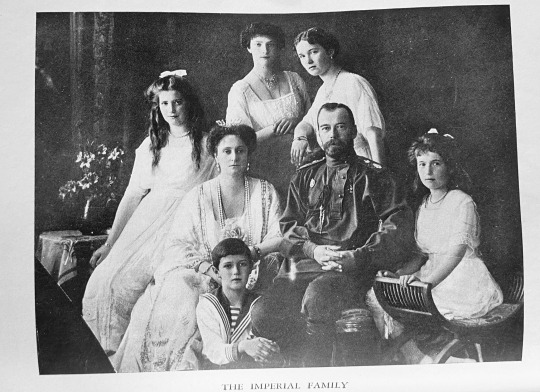
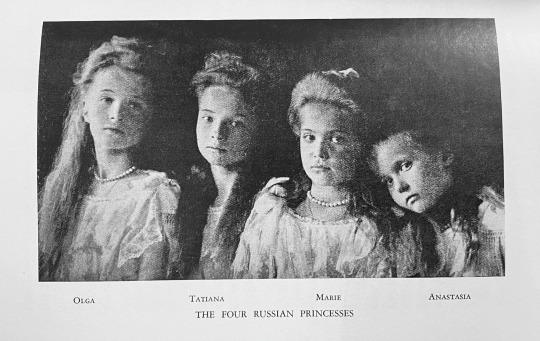
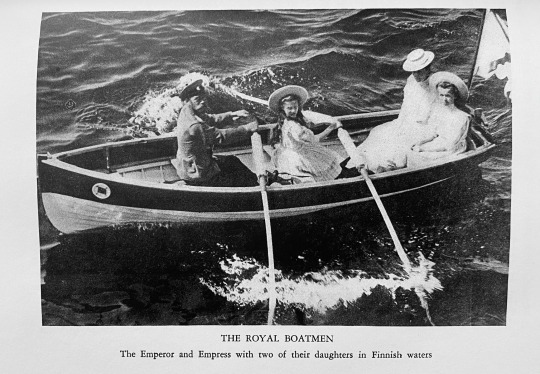

Tsar Nicholas II of Russia and his family as featured in Gleb Botkin’s The Real Romanovs (1931).
Gleb Botkin was the son of Dr. Eugene Botkin, who was the court physician for Nicholas and his family from 1908 to 1918. Dr. Botkin was close with both the Tsar and the Tsarina, and traveled with them to Yekaterinburg, where they were all executed on July 17, 1918. Gleb and his sister grew up alongside the imperial children, often playing together during the holidays. After the revolution, the two siblings fled to Siberia and Japan before settling in the United States in 1922. Gleb became acquainted with Anna Anderson, the most notorious of the Romanov impostors, in Germany in 1927. He recognized her as the Grand Duchess Anastasia, and became a fervent supporter of her claim for the rest of his life. He authored many novels and articles, including The Real Romanovs, and corresponded with the remaining Romanovs about “Anastasia.” Gleb, along with Princess Xenia Georgievna, paid for Anna to travel to France and the United States in 1928. Later that year, Nicholas II’s mother, the Dowager Empress Maria Feodorovna, died in her native Denmark. At her funeral in Copenhagen, many of the most prominent members of the family gathered to sign the “Copenhagen Statement,” which was a joint rejection of Anna’s claim. She lived in a state of tumultuous, on-and-off luxury and squalor in Europe from the 1930s to the 1960s. In 1968, Gleb and his friend John Manahan funded her journey to the United States. The three lived near one another in Charlottesville, Virginia. Anna and John were wed later that year, with Gleb as the best man. Gleb died the following year, and Anna passed in 1984. After her death, the remains of the Imperial Family were tested with Anderson’s DNA, proving once and for all that Anna was not the Grand Duchess Anastasia.
(I took these pictures myself! I have a copy of the original print of this book from 1931. These photographs are widely available on the internet, but I don’t believe the third one is very common. The two Grand Duchesses pictured are Olga and Tatiana.)
#grand duchess olga nikolaevna#grand duchess tatiana#grand duchess maria nikolaevna#grand duchess anastasia#tsarevich alexei#empress alexandra feodorovna#tsar nicholas ii#history#russia#royalty#gleb botkin
75 notes
·
View notes
Photo

Tsarevich Alexei during a medical treatment.
29 notes
·
View notes
Text

Grand Duchess Elisabeth Feodorovna Romanova of Russia recuperating from her operation.Her younger sister Princess Irene of Prussia came to Russia to help look after her.
Down below is an interesting find.
A report by Dr Rein to Tsar Nicholas ll of Russia about an illness of his sister-in-law
Grand Duchess Elisabeth Feodorovna.
"Your Imperial Majesty
In addition to the telegram sent by the chamberlain of Her Highness Grand Duchess Elizaveta Feodorovna there is our loyal report to Your Imperial Majesty:
Her Highness had been ill with fibroids during some years, but the last months this illness has became progressive and the patient has been suffering a lot. We noted the growth of the tumour, profuse bleeding and periodical rising of the temperature because of an associated adnexitis. All that could lead to fatal complications and we considered the only possible outcome was to perform the radical surgery.
The operation was done this morning at Her Highness Hospital in a special room. The result is hopeful.
The tumour was excised by celiotomy incision, the fibroid had grown much into surrounding organs and broad ligaments at left.
The bleeding during the surgery was trivial, Grand Duchess exercised the chloroform anaesthesia quite well.
The surgery was aceptic. The full time of it was an hour and a half, the tumour was excised within the hour. The surgery was very difficult technically. The complications after it can make place during the next 3 days.
Her Highness regained senses just after the surgery.
Your Imperial Highness most loyal subjects:
Academician Rein
Honorary Surgeon in Ordinary,Professor S.Botkin"
Note: the original letter was in Russian.This is my translation.
It's interesting that nine days after the surgery Dr. Rein was invited to the Alexander Palace where he had to explain to Tsar Nicholas ll and Empress Alexandra Feodorovna the details of the surgery. Empress Alexandra even asked Dr.Rein to go into detail about the actual operation.
📌 This may explain why Ella and Serge never had children
📌 Surgery was in January 1908
📌 Fibroids ~ non cancerous growth in the uterus.
📌 Adnexitis ~ Inflammation of the uterine appendages,including infection of the fallopian tubes and the ovaries
📌 S. Botkin ~ Sergey Petrovich Botkin,is the father of Dr Eugenia Sergeevich Botkin.
19 notes
·
View notes
Photo

David Warner as Dr Botkin in Rasputin, Dark Servant of Destiny
(1996)
@amalthea9
I am convinced that if you are a british shakespearean actor you are the most likely to be cast in two things: sci fi and fantasy movies and tv shows, and periods dramas set during the Romanoffs downfall.
10 notes
·
View notes
Photo






13th June 1908
Photo 1-2 : seated ; Olga Evgenievna Byutsova, Grand Duchess Tatiana Nikolaevna, Tsar Nicholas II, Tsaritsa Alexandra Feodorovna, Princess Elizabeth Nikolaevna Obolensky, Nikolai Vasilievich Sablin, Grand Duchess Maria Nikolaevna, Anna Alexandrovna Vyrubova, Grand Duchess Olga Nikolaevna, Grand Duchess Anastasia Nikolaevna, Tsesarevich Alexei Nikolaevich and Count Paul Benckendorff. standing ; Baron Lev Ernestovich von der Osten-Sacken, Sergei Nikolaevich Timirev, unknown, unknown, Father Dobrovolsky (?), unknown, Ivan Ivanovich Smirnov (?), Lev Andreevich Babitsyn, unknown, Saltanov, Nikolai Pavlovich Sablin, Stanislav Romanovich Nevyarovsky, unknown, Dr. Evgeni Botkin, Ivan Ivanovich Chagin, Nikolai Pavlovich Chistyakov and Alexander Alexandrovich Drenteln onboard the Standart, 13th June 1908.
Photo 2-3 : Tsar Nicholas II, Tsesarevich Alexei Nikolaevich and Ivan Ivanovich Chagin with sailors onboard the Standart.
Photo 4-5 : Tsesarevich Alexei Nikolaevich with sailors onboard the Standart.
"13th June. Friday. In the morning it rained lightly until 12. Gann photographed us alone, with the officers, with the people leaving for the reserve and with the whole crew. After breakfast, everyone went to the children's island, where we walked for a long time. The weather was cloudy but warm. Returned to the yacht for tea. Played boule. After dinner, went again for a ride in a motor."
(1908 Diary of Tsar Nicholas II)
Photos from: Anna Vyrubova's Album n°6 Tsaritsa Alexandra Feodorovna's 1908-1912 Album
#1908#Standart#Nicholas II#alexandra feodorovna#Alexei Nikolaevich#Olga Nikolaevna Romanova#Tatiana Nikolaevna Romanova#Maria Nikolaevna Romanova#Anastasia Nikolaevna Romanova#anya vyrubova#Princess Elizabeth Nikolaevna Obolensky#Nikolai Pavlovich Sablin#Nikolai Vasilievich Sablin#Ivan Ivanovich Chagin#Sergey Timirev#Dr Botkin#Alexandr Alexandrovich Drenteln#Lev Andreevich Babitsyn#Count Paul Benckendorff#Nikolai Pavlovich Chistyakov
50 notes
·
View notes